
In recent years, there has been a significant rise in the popularity of veganism as more individuals recognize the environmental, ethical, and health benefits of adopting a plant-based diet. However, some people may question whether it is possible to achieve their fitness goals, particularly when it comes to building muscle, on a vegan meal plan. The good news is that with the right knowledge and planning, it is entirely feasible to fuel your gains and optimize muscle growth on a vegan diet. This article will delve into the various components of a vegan meal plan for muscle gain, including macronutrients, essential nutrients, pre and post-workout nutrition, meal plan examples, supplementation options, and strategies for maximizing nutrient absorption. So whether you are a seasoned vegan athlete or considering transitioning to a plant-based lifestyle while still pursuing your muscle-building goals, this article will provide you with the resources and information you need to thrive. [1][2]
Why a vegan meal plan is beneficial for muscle growth

A vegan meal plan can be highly beneficial for muscle growth due to several reasons. Firstly, plant-based foods are typically rich in fiber, which aids digestion and promotes a healthy gut, allowing the body to optimize nutrient absorption and utilization. Secondly, a well-planned vegan diet can provide ample amounts of protein from sources such as legumes, tofu, tempeh, and seitan. Protein is essential for muscle repair and growth. Additionally, a vegan meal plan is often low in saturated fat and cholesterol, which can contribute to improved cardiovascular health and overall well-being. Finally, by eliminating animal products, individuals following a vegan meal plan may also reduce inflammation and enhance recovery time after workouts. [3][4]
Understanding the importance of balanced nutrition
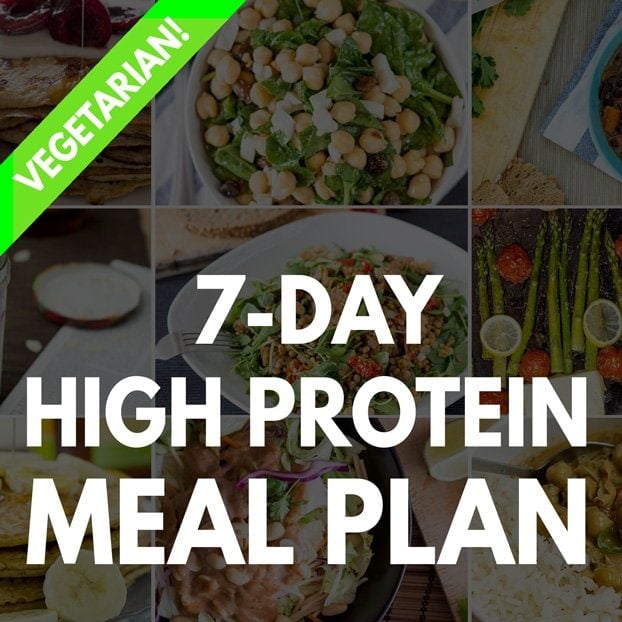
To achieve muscle growth and optimize overall health, it is crucial to understand the importance of balanced nutrition. A well-balanced vegan meal plan should consist of a variety of nutrient-dense foods that provide a range of macronutrients, vitamins, and minerals.
Protein is essential for muscle building and repair, but it should be complemented with an adequate intake of carbohydrates for energy and fats for hormone production and absorption of fat-soluble vitamins. Additionally, incorporating a wide variety of fruits and vegetables ensures the intake of essential vitamins, minerals, antioxidants, and fiber.
By focusing on balanced nutrition, individuals can ensure they are meeting their body's needs for optimal muscle growth while also promoting overall health and well-being. [5][6]
Macronutrients for Muscle Growth
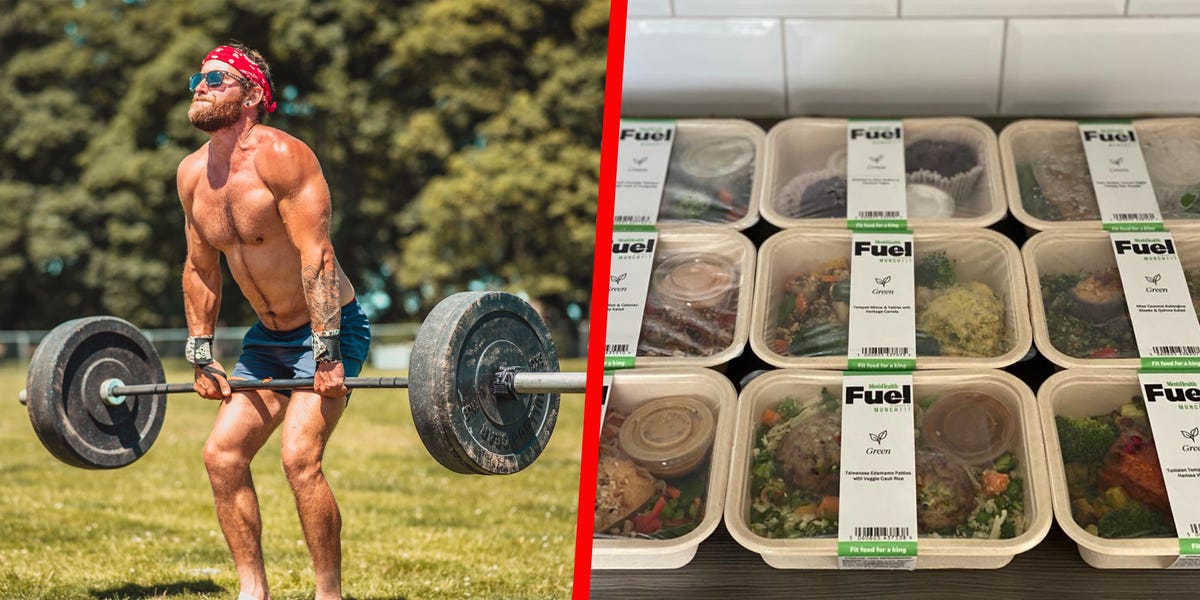
When it comes to building muscle, macronutrients play a crucial role. These are the three major nutrients that our bodies need in larger quantities: protein, carbohydrates, and fats. Each macronutrient contributes differently to muscle growth and should be included in a well-rounded vegan meal plan.
Protein is particularly important for muscle growth as it provides the necessary amino acids for repair and growth. Plant-based sources of protein include beans, lentils, tofu, tempeh, quinoa, and hemp seeds. Carbohydrates are essential for fueling workouts and providing energy for muscle recovery. Whole grains, fruits, vegetables, and legumes are excellent sources of complex carbohydrates.
While many associate fats with weight gain, they are actually essential for hormone production and overall health. Healthy plant-based fats can be found in avocados, nuts, seeds, and olive oil.
By including a balance of these macronutrients in your vegan meal plan, you can ensure optimal muscle growth while maintaining a healthy plant-based diet. [7][8]
Protein sources in a vegan meal plan
:max_bytes(150000):strip_icc()/vegan-caesar-960-1bf8b1bb58364f31965b1c3368dae7e3.jpg)
To build muscle on a vegan meal plan, it's essential to incorporate a variety of plant-based protein sources. While animal products are known for their high protein content, there are plenty of vegan options available. Legumes such as lentils, chickpeas, and black beans are excellent sources of protein, as well as tofu, tempeh, and edamame. Additionally, quinoa and amaranth are pseudocereals that provide complete proteins. Other plant-based protein sources include seitan, hemp seeds, chia seeds, and nutritional yeast. Incorporating these protein-rich foods into your vegan meal plan will ensure you're getting the necessary amino acids for muscle growth and repair. [9][10]
Carbohydrates and fats for energy and recovery

Carbohydrates and fats play a crucial role in providing the energy needed for muscle growth and aiding in post-workout recovery. Carbohydrates are the body's primary source of energy, particularly during high-intensity exercises. Including complex carbohydrates, such as whole grains, legumes, and root vegetables, in your vegan meal plan will provide a steady release of glucose into your bloodstream, fueling your muscles during workouts.
Fats are also essential for muscle growth and overall health. Healthy fats, found in avocados, nuts, seeds, and olive oil, provide a concentrated source of calories necessary for energy production and nutrient absorption. Moreover, certain types of fats, like omega-3 fatty acids found in flaxseeds and walnuts, have anti-inflammatory properties that aid in muscle recovery.
Balancing the intake of both carbohydrates and fats is crucial to ensure sustained energy levels and optimal muscle recovery. Including a variety of plant-based foods that are rich in both macronutrients will provide the necessary fuel for your workouts and facilitate muscle growth on your vegan journey. [11][12]
Building Blocks: Essential Nutrients
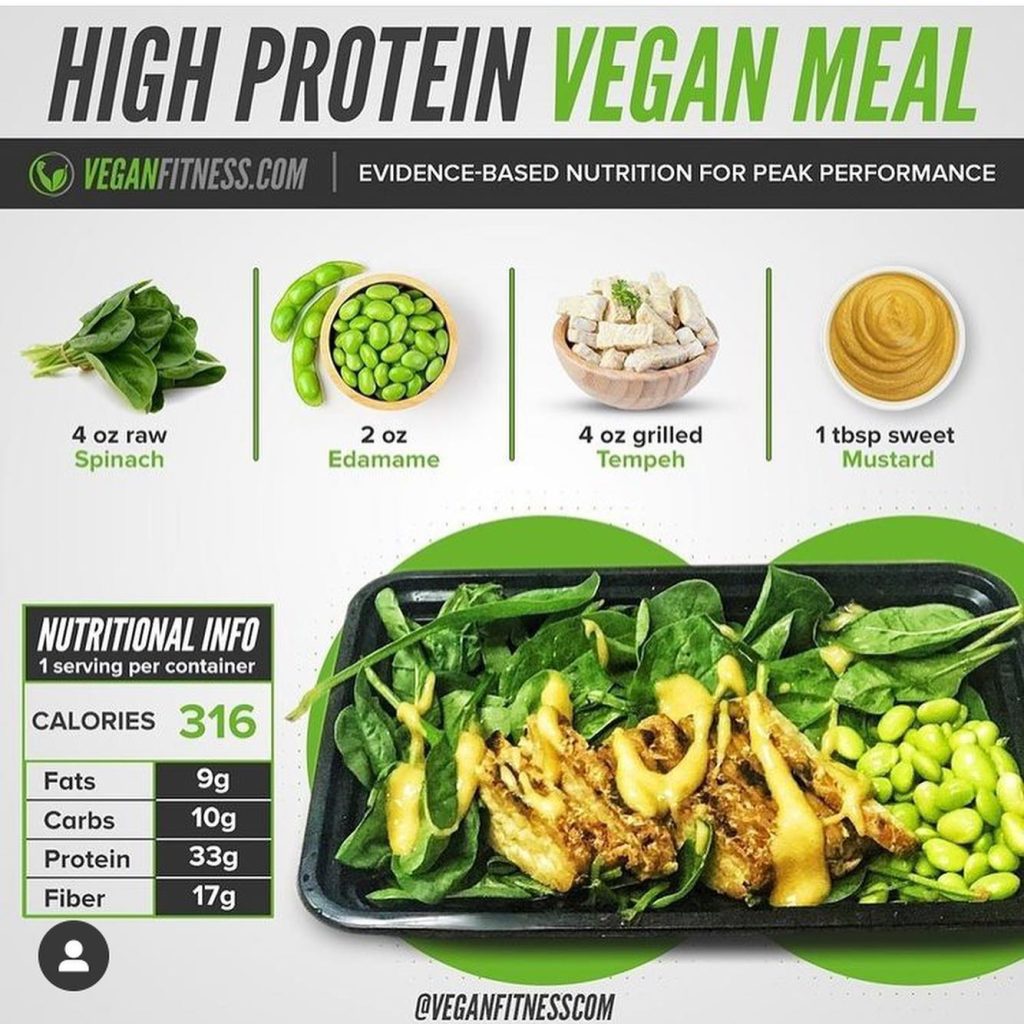
To support muscle growth and overall health, it is crucial to ensure an adequate intake of essential nutrients. While following a vegan meal plan, it is important to focus on key vitamins and minerals that play a vital role in muscle development.
Vitamin B12 is one essential nutrient that is commonly found in animal products. However, vegans can obtain this vitamin through fortified plant-based foods or supplements. Iron is another important mineral for muscle growth, as it aids in the transportation of oxygen to the muscles. Plant-based sources of iron include lentils, spinach, and tofu.
Additionally, calcium is necessary for strong bones and muscle contractions. Vegans can obtain calcium from sources like fortified plant milks, broccoli, and almonds.
Omega-3 fatty acids are essential for reducing inflammation and promoting muscle recovery. While fish is a common source of omega-3s, vegans can consume chia seeds, flaxseeds, or walnuts for their omega-3 requirements.
By ensuring an adequate intake of these essential nutrients through a well-planned vegan meal plan, individuals can support optimal muscle growth while still adhering to their plant-based lifestyle. [13][14]
Key vitamins and minerals for muscle growth

To support muscle growth, it is vital to include key vitamins and minerals in a vegan meal plan. These nutrients play crucial roles in various aspects of muscle development and repair. Vitamin D is essential for calcium absorption and bone health, which indirectly contributes to muscle strength. Vitamin B12 is necessary for the production of red blood cells and energy metabolism, important for endurance during workouts. Iron is vital for oxygen transport and muscle function, while zinc aids in protein synthesis and tissue repair. Additionally, magnesium supports muscle relaxation and contraction. Including plant-based sources of these nutrients ensures optimal muscle growth on a vegan diet. [15][16]
Ensuring proper intake through plant-based foods

When following a vegan meal plan for muscle growth, it's essential to ensure that you're getting all the necessary nutrients through plant-based foods. While eliminating animal products from your diet may require a bit more attention to detail, it's entirely possible to meet your nutritional needs through thoughtful meal planning.
To ensure proper intake, it's important to include a variety of plant-based protein sources such as legumes, tofu, tempeh, seitan, and quinoa. These foods will provide you with the essential amino acids needed for muscle repair and growth. Additionally, incorporating a wide range of fruits and vegetables into your meals will provide you with essential vitamins and minerals that support overall health and muscle function.
Furthermore, including healthy fats sources like avocados, nuts, seeds, and plant-based oils can help provide energy and aid in nutrient absorption. These fats are also crucial for hormone production and joint health.
By diversifying your plant-based food choices and paying close attention to meeting your nutrient needs, you can ensure optimal muscle growth while following a vegan diet plan. [17][18]
Pre-Workout Nutrition

One important aspect of a vegan meal plan for muscle growth is pre-workout nutrition. Fueling your body properly before exercise can help optimize performance and enhance muscle development. When it comes to pre-workout meals, it's important to focus on foods that provide sustained energy and promote endurance. For vegan athletes, a combination of complex carbohydrates and plant-based protein sources can be particularly beneficial. Foods like whole grains, legumes, and tofu can provide necessary nutrients and fuel for intense workouts. Additionally, hydrating adequately before exercise is crucial for optimal performance. Staying hydrated helps maintain electrolyte balance and supports proper muscle function. By paying attention to pre-workout nutrition, vegan athletes can ensure they have the energy they need to power through their workouts and support muscle growth. [19][20]
Optimal plant-based meals and snacks before workouts

Before heading to the gym or engaging in any physical activity, fueling your body with the right nutrients is essential for optimal performance. As a vegan athlete, it's important to choose plant-based options that provide the necessary energy and nutrients to support your workout.
For pre-workout meals, focus on consuming complex carbohydrates for sustained energy. Examples include a bowl of oatmeal topped with fruits and nuts, whole grain toast with avocado or nut butter, or a smoothie made with plant-based protein powder, spinach, and berries.
If you prefer quick snacks before your workout, consider options such as a banana with almond butter, a handful of trail mix with dried fruits and seeds, or a homemade energy bar made from dates and nuts.
These plant-based meals and snacks will provide you with the necessary carbohydrates for energy, as well as some protein for muscle repair and growth. Additionally, they are easily digestible so that you can avoid any discomfort during your workout. Remember to hydrate adequately before exercising by drinking water or plant-based beverages like coconut water.
By consuming an optimal pre-workout meal or snack tailored to your vegan needs, you'll feel energized and ready to crush your workout while supporting muscle growth and recovery. [21][22]
Importance of hydration and electrolyte balance
Proper hydration is crucial for overall health and performance, especially during intense workouts. When it comes to muscle growth, staying hydrated is essential for optimal recovery and nutrient delivery to the muscles. Hydration helps maintain the balance of electrolytes, which are minerals like sodium, potassium, and magnesium that play a vital role in regulating muscle contractions and nerve function.
During exercise, the body loses water and electrolytes through sweat. Failure to replenish these fluids can lead to dehydration, which can negatively impact muscle function and hinder muscle growth. In addition, imbalances in electrolyte levels can cause muscle cramps and fatigue.
To ensure proper hydration and electrolyte balance, it is important to drink enough water throughout the day, especially during workouts. Electrolyte-rich drinks or natural options like coconut water can help replace lost electrolytes. It's also essential to listen to your body's thirst cues and hydrate accordingly.
By maintaining adequate hydration and electrolyte balance, you can support muscle growth, prevent muscle cramps, and optimize overall physical performance. [23][24]
Post-Workout Recovery
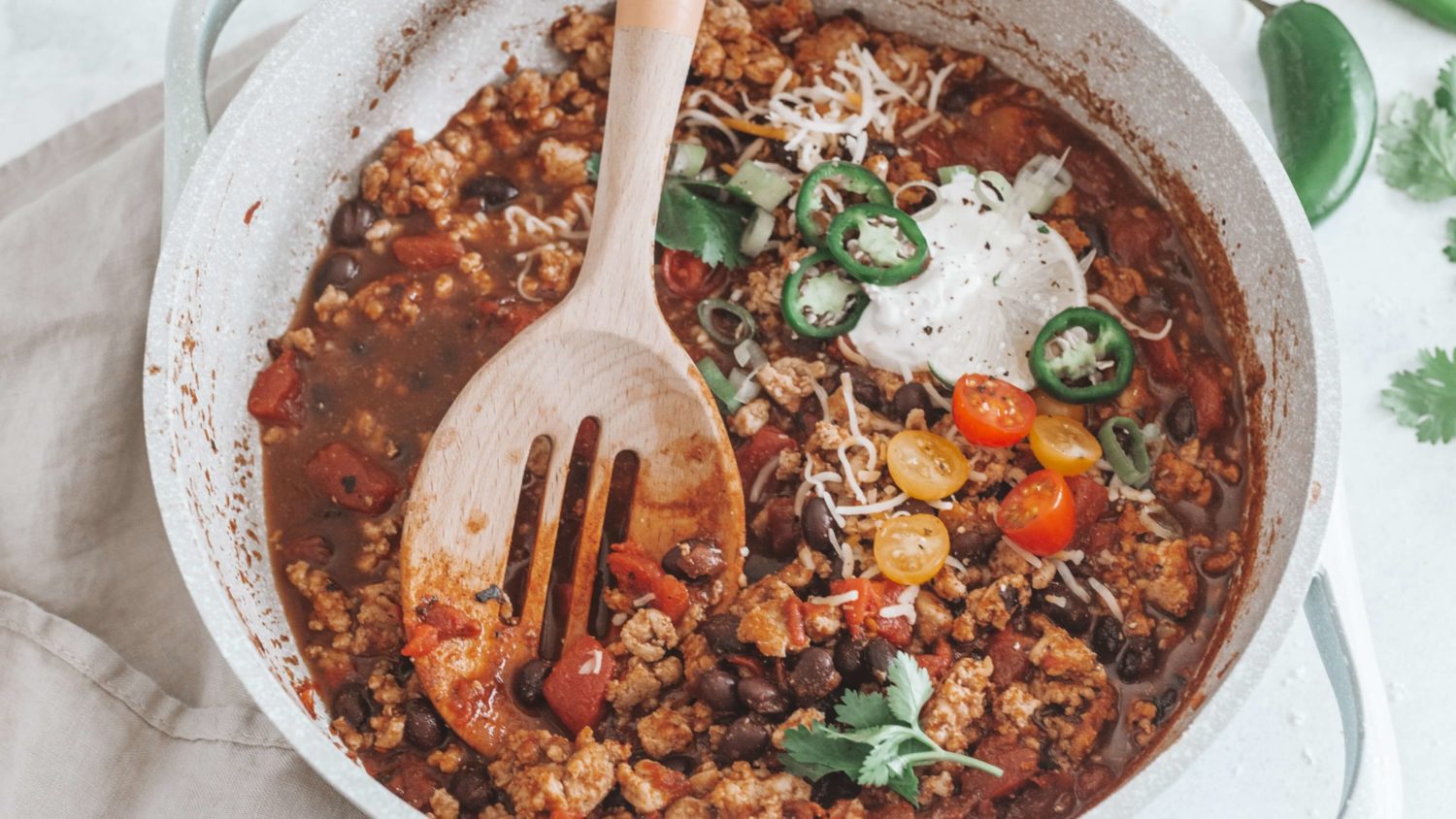
After an intense workout session, proper post-workout recovery is essential for muscle growth on a vegan meal plan. During exercise, muscles undergo stress and microtears, and the body's glycogen stores are depleted. To replenish these glycogen stores, it is important to include vegan options rich in carbohydrates in your post-workout meal. This can include foods like sweet potatoes, quinoa, or whole-grain bread. Additionally, plant-based protein sources such as tofu, tempeh, or lentils should be consumed to promote muscle repair and growth. By prioritizing adequate nutrition post-workout, vegans can optimize their muscle recovery process and support their overall fitness goals. [25][26]
Replenishing glycogen stores with vegan options
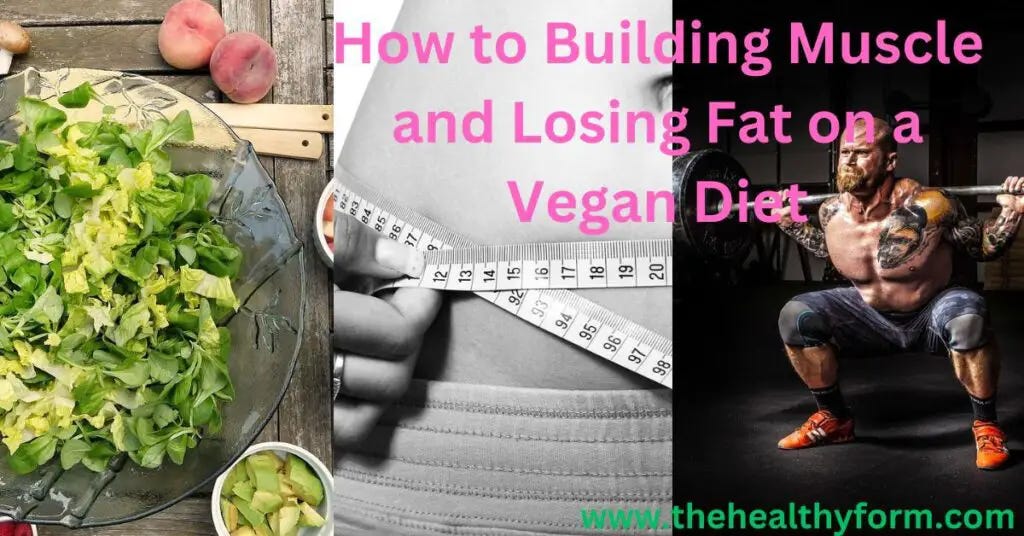
Replenishing glycogen stores is crucial for muscle recovery and growth, especially after intense workouts. While many athletes turn to animal-based foods for this purpose, vegans can also effectively replenish their glycogen stores using plant-based options. Whole-grain carbohydrates such as oats, brown rice, and quinoa are excellent choices as they provide a steady release of energy and contain essential nutrients. Fruits like bananas and dates are also great options due to their high carbohydrate content. Additionally, consuming starchy vegetables like sweet potatoes and legumes like lentils and chickpeas can help replenish glycogen stores efficiently. By incorporating these vegan options into their post-workout meals or snacks, individuals following a vegan meal plan can ensure that their muscles have an adequate supply of glycogen for optimal recovery and growth. [27][28]
Plant-based protein for muscle repair and growth

Plant-based protein sources are essential for muscle repair and growth in a vegan meal plan. While some may believe that animal-based protein is necessary for building muscle, there are plenty of plant-based options that provide the same benefits. These plant-based protein sources include legumes like beans, lentils, and chickpeas, as well as tofu, tempeh, and seitan. These foods are not only rich in protein but also contain other important nutrients like fiber, antioxidants, and phytochemicals. Consuming an adequate amount of plant-based protein after a workout helps to promote muscle recovery and growth, allowing individuals on a vegan meal plan to achieve their muscle-building goals. [29][30]
Meal Plan Examples
:max_bytes(150000):strip_icc()/vegan-caesar-960-1bf8b1bb58364f31965b1c3368dae7e3.jpg)
Creating a well-balanced vegan meal plan for muscle gain can seem daunting at first, but it is certainly achievable. Here are some meal plan examples to help you get started on your journey to building muscle on a plant-based diet.
For breakfast, you can have a hearty bowl of oatmeal topped with almond milk, berries, and a sprinkle of chia seeds. For lunch, try a quinoa and vegetable stir-fry with tofu for added protein. You can enjoy hummus with carrot sticks or a protein-rich smoothie made with plant-based protein powder as an afternoon snack. For dinner, opt for lentil curry served with brown rice and a side of roasted vegetables. And for dessert, indulge in a delicious dairy-free chocolate avocado mousse.
Remember to adapt these meal plans according to your specific calorie and nutrient needs, and feel free to experiment with different ingredients and recipes based on your preferences. [31][32]
Sample vegan meal plans for muscle growth

When it comes to building muscle on a vegan diet, it's important to ensure that your meals are balanced and provide all the necessary nutrients for muscle growth. Here are a few sample meal plans that can help you reach your muscle-building goals:
- Breakfast: Start your day with a power-packed smoothie made with a combination of plant-based protein powder, almond milk, spinach, banana, and a handful of berries.
- Mid-Morning Snack: Snack on a handful of almonds or cashews for a protein and healthy fat boost.
- Lunch: Enjoy a hearty chickpea salad with mixed greens, cherry tomatoes, cucumber, bell peppers, and roasted chickpeas. Drizzle with a tahini dressing for added flavor.
- Afternoon Snack: Satisfy your cravings with a protein-packed tofu scramble or a portion of hummus with carrot sticks.
- Dinner: Dig into a lentil and vegetable stir-fry served over quinoa for a balanced meal rich in plant-based protein and complex carbohydrates.
- Evening Snack: Indulge in a vegan protein bar or make yourself a delicious smoothie bowl topped with nuts and seeds for some extra protein.
Remember to listen to your body's hunger cues and adjust portion sizes accordingly. These sample meal plans can be customized based on your specific caloric needs and preferences. Consulting with a Registered Dietitian or Nutritionist can also help you design an optimal vegan meal plan for muscle growth that suits your individual needs.
By following carefully planned vegan meal plans like these, you can ensure that you're providing your body with the right fuel for muscle growth while still enjoying the benefits of plant-based nutrition. [33][34]
Options for breakfast, lunch, dinner, and snacks

When it comes to planning your vegan meal plan for muscle growth, there are plenty of delicious options for breakfast, lunch, dinner, and snacks that will help you meet your nutritional needs. For breakfast, you can start your day with a protein-packed smoothie made with almond milk, berries, spinach, and a scoop of vegan protein powder. For lunch, try a hearty salad loaded with mixed greens, chickpeas, quinoa, and avocado. Dinner can be a satisfying stir-fry with tofu or tempeh and an assortment of colorful vegetables. And for snacks, reach for nutrient-dense options like roasted chickpeas, edamame, or a handful of nuts and seeds. [35][36]
Supplementation for Vegans

Supplementation can play a crucial role in supporting muscle growth for vegans. While a well-planned vegan meal plan can provide most of the essential nutrients, some certain vitamins and minerals may be more challenging to obtain solely from plant-based sources. As such, incorporating vegan supplements into your routine can help fill in any nutritional gaps and maximize muscle gains.
Some key supplements for vegans to consider include:
- Vitamin B12: This essential nutrient is primarily found in animal products, so vegans need to supplement with B12 to support energy production and nerve function.
- Omega-3 Fatty Acids: Plant-based sources of omega-3s, such as flaxseeds and chia seeds, provide ALA, a precursor to EPA and DHA. However, the conversion rate of ALA to EPA and DHA is relatively low, so incorporating an algae-based omega-3 supplement can ensure an adequate intake.
- Creatine: Creatine is a popular supplement among athletes for its ability to enhance muscle strength and power. While creatine is naturally found in animal products, vegan-friendly creatine supplements derived from fermented sources are available.
- Protein Powders: While it's possible to meet protein needs through whole foods alone, protein powders can be a convenient way for vegans to ensure an adequate protein intake for muscle growth. Options such as pea protein, rice protein, and hemp protein are suitable choices.
It's important to note that supplementation should not replace a well-rounded vegan meal plan but rather complement it. Consulting with a healthcare professional or registered dietitian who specializes in vegan nutrition can help determine which supplements may be beneficial based on individual needs and goals. [37][38]
Understanding the need for vegan supplements

When following a vegan meal plan, it's important to recognize that certain nutrients may be more challenging to obtain solely from plant-based sources. While a well-planned vegan diet can provide most of the necessary nutrients for muscle growth, there are a few key supplements that vegans should consider incorporating into their routine.
One important supplement for vegans is vitamin B12, as this vitamin is primarily found in animal products. Vitamin B12 plays a crucial role in energy production and the production of red blood cells, making it essential for overall health and muscle growth. Vegans can find vitamin B12 in fortified plant-based foods or can opt for a supplement.
Another supplement that may be beneficial for muscle growth on a vegan diet is creatine. Creatine is naturally occurring in animal products and is known to improve strength and muscle performance. However, vegans can still benefit from creatine supplementation by using plant-based creatine sources such as Creapure®.
Lastly, vegans should consider omega-3 fatty acid supplementation. Omega-3s, particularly DHA and EPA, are found predominantly in fatty fish, but they are also vital for reducing inflammation and promoting muscle recovery. Vegans can obtain omega-3s from algae-based supplements.
While these supplements can help fill potential nutritional gaps in a vegan diet for muscle growth, it's always best to consult with a healthcare professional or registered dietitian for personalized recommendations based on individual needs and goals. [39][40]
Recommended options for enhancing muscle growth

One of the key considerations for vegans looking to enhance muscle growth is ensuring they are meeting their protein needs. While plant-based sources of protein can be just as effective, it may be beneficial to incorporate vegan protein supplements into your diet. Options such as pea protein, brown rice protein, and hemp protein are popular choices among athletes and bodybuilders. Additionally, creatine monohydrate is another supplement that can aid in muscle growth and performance. It is important to consult with a healthcare professional or registered dietitian to determine the appropriate supplementation plan for your specific needs and goals. [41][42]
Eating for Performance

When it comes to maximizing muscle growth, eating for performance is key. Fueling your body with the right nutrients at the right time can make a significant difference in your athletic performance and overall muscle-building potential.
Timing and portioning meals are crucial for optimal muscle growth. Consuming a balanced meal that includes a combination of carbohydrates, proteins, and healthy fats before a workout can provide the necessary energy and nutrients to support intense training sessions. It is recommended to eat this meal approximately two to three hours before exercise to allow for proper digestion.
Similarly, post-workout nutrition is essential for recovery and muscle repair. Consuming a meal or snack within 30 minutes to an hour after exercise can help replenish glycogen stores and support muscle growth. Including plant-based sources of protein such as tofu, tempeh, legumes, and quinoa in your post-workout meal can aid in repairing damaged muscle tissues.
Another aspect of eating for performance is maximizing nutrient absorption and utilization. Including a variety of plant-based foods rich in key vitamins and minerals like iron, calcium, zinc, and vitamin D can support optimal muscle function and overall health. Pairing these foods with vitamin C-rich options like citrus fruits, bell peppers, or leafy greens can enhance the absorption of these nutrients.
In addition to focusing on macronutrients and essential nutrients, hydration plays a crucial role in performance. Staying properly hydrated throughout the day can promote optimal muscle function, prevent cramping, and aid in nutrient delivery.
By paying attention to timing, portioning meals appropriately, maximizing nutrient absorption through food pairings, and staying hydrated, you can optimize your vegan meal plan for maximum performance and muscle growth. Prioritizing these factors will help you attain your fitness goals while following a vegan lifestyle. [43][44]
Timing and portioning meals for optimal muscle growth

is an important aspect of any vegan meal plan for muscle gain. The timing of meals plays a crucial role in providing your body with the necessary nutrients to support muscle growth and repair. It is recommended to spread your meals throughout the day, aiming for around 4-6 meals/snacks to ensure a consistent intake of nutrients.
In terms of portioning, it's essential to include a balanced combination of macronutrients in each meal. This means including a source of protein, such as tofu, tempeh, or legumes, along with carbohydrates from whole grains and fruits, and healthy fats from nuts, seeds, or avocado. Aim to have larger portions of protein-rich foods post-workout to support muscle recovery.
Additionally, paying attention to portion sizes can help prevent overeating and promote better digestion. It's important not to restrict calories too much, as this can hinder muscle growth. Instead, focus on consuming enough calories overall by incorporating nutrient-dense foods into your meals.
By timing and portioning your meals strategically, you can optimize nutrient absorption and utilization for optimal muscle growth on a vegan diet. Remember to listen to your body's hunger and fullness cues and make adjustments to your meal plan accordingly. Consulting with a registered dietitian who specializes in plant-based nutrition can also be beneficial in tailoring a meal plan that meets your specific needs and goals. [45][46]
Maximizing nutrient absorption and utilization
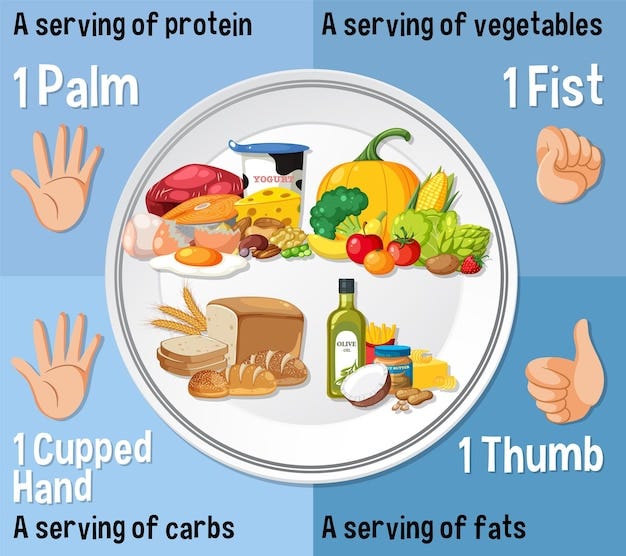
Maximizing nutrient absorption and utilization is essential for optimizing muscle growth on a vegan meal plan. While consuming a variety of plant-based foods provides ample nutrients, certain strategies can enhance absorption and utilization.
Firstly, incorporating foods rich in vitamin C, such as citrus fruits and leafy greens, can promote the absorption of iron from plant sources. Iron is crucial for oxygen transport to muscles during exercise and plays a vital role in muscle function.
Additionally, pairing plant-based sources of iron with foods high in vitamin A, such as sweet potatoes and carrots, can further enhance iron absorption. Vitamin A aids in the production of proteins necessary for muscle growth and repair.
Moreover, consider including fermented foods like sauerkraut or tempeh. Fermented foods contain probiotics that support gut health, which is important for nutrient absorption. A healthy gut ensures that beneficial nutrients from your vegan meal plan are effectively absorbed into the body.
Furthermore, it is important to note that some nutrients require specific conditions for optimal utilization. For example, consuming plant-based sources of calcium alongside vitamin D-rich foods or getting enough sunlight can aid calcium absorption and promote bone health.
Finally, paying attention to meal timing and spacing out protein intake throughout the day can optimize muscle protein synthesis. Aim to distribute protein intake evenly across meals and snacks to support muscle growth and repair throughout the day.
By following these strategies to maximize nutrient absorption and utilization, individuals on a vegan meal plan can ensure they are getting the most out of their plant-based nutrition for optimal muscle growth and overall health. [47][48]
Conclusion

In conclusion, a vegan meal plan can be just as effective for muscle growth as a non-vegan diet. By following a balanced nutrition approach and ensuring an adequate intake of macronutrients, plant-based athletes can achieve their desired muscle gains. Incorporating protein-rich sources such as legumes, tofu, and tempeh, along with carbohydrates and healthy fats, provides the necessary fuel for workouts and aids in muscle repair. It is important to focus on consuming essential nutrients through plant-based foods and consider supplementation when needed. By optimizing pre-workout nutrition, post-workout recovery, and meal timing, vegans can fuel their bodies for optimal performance. With careful planning and attention to nutrient needs, a vegan meal plan can support muscle growth while reaping the countless health benefits of a plant-based lifestyle. [49][50]
The benefits and challenges of a vegan meal plan for muscle growth

A vegan meal plan for muscle growth can offer numerous benefits for individuals looking to build muscle while following a plant-based diet. One of the key benefits is the abundance of nutrients from fruits, vegetables, legumes, nuts, and seeds, which provide essential vitamins and minerals necessary for muscle repair and growth. Furthermore, a vegan diet tends to be lower in saturated fats and cholesterol, which can promote overall heart health.
However, some challenges come with following a vegan meal plan for muscle growth. One challenge is ensuring an adequate intake of protein, as plant-based protein sources may not contain all the essential amino acids found in animal-based proteins. It is important for individuals to carefully plan their meals to include a variety of plant-based proteins to meet their protein needs. Additionally, some individuals may need help to meet their caloric needs on a vegan diet, as plant-based foods tend to be less calorie-dense than animal-based foods.
Overall, with careful meal planning and attention to nutrient intake, a well-structured vegan meal plan can support muscle growth and provide numerous health benefits. Consulting with a registered dietitian or nutritionist who specializes in plant-based diets can help ensure that nutrient needs are being met and optimize muscle gain on a vegan diet. [51][52]
Key takeaways and tips for success

To successfully build muscle on a vegan meal plan, there are a few key takeaways and tips to keep in mind. First and foremost, ensure that your diet is well-rounded and includes a variety of fruits, vegetables, legumes, nuts, and seeds. These plant-based foods provide the necessary protein, carbohydrates, fats, vitamins, and minerals needed for muscle growth.
It's also important to pay attention to portion sizes and timing of meals. Distribute your calories throughout the day to fuel your workouts and promote muscle repair and growth. Additionally, consider incorporating supplementation into your diet if needed to ensure you're meeting your nutrient requirements.
Lastly, consistency is key. Stick to your vegan meal plan diligently and make adjustments as needed based on your progress and goals. With dedication and proper nutrition, you can achieve significant muscle gains on a vegan diet. [53][54]
from Muscles Monsters https://ift.tt/4qdus5B




